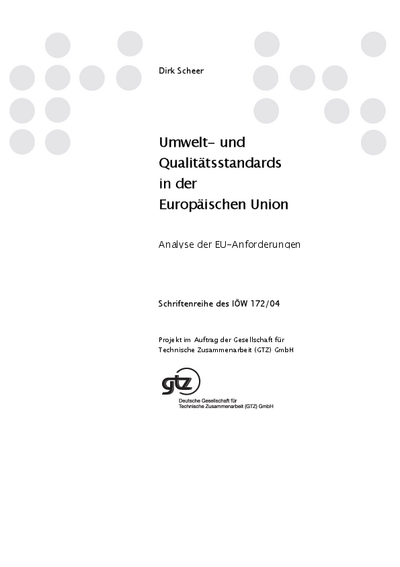Umwelt- und Qualitätsstandards in der Europäischen Union Analyse der EU-Anforderungen an Importprodukte aus dem Maghreb
In 1995, the European Union and Mediterranean countries initiated the Euro-Mediterranean Partnership which will oversee the step by step establishment of a free trade zone by 2010. Dismantling trade restrictions will give the Maghreb countries - Algeria, Morocco and Tunisia - unlimited market access to the European internal market – and vice versa! Taking environmental and quality standards of the EU into account, it may result in a decisive competitive advantage. To identify the most relevant product-related EU-standards for imported products from the Maghreb countries in the EU is the aim of this report. The determination of environmental and quality standards is a dynamic process based on scientific, technological, and social values – in brief: they change. Environmental standards in the true sense are quantitative specifications in the form of a threshold or critical value (hazardous substances, noise). Product requirements are not restricted only to meet threshold values. In this report, product-related standards have been considered in a wider sense. They include requirements aimed at protecting human health, environment or safety at work – be it via meeting critical values, mandatory labelling or voluntary codes of conduct. The most relevant export industries in the Maghreb countries are the textile and leather industries, the agriculture industry and the metal- and electronic manufacturing automotive supplier industry.



